GoPro Hero 12 Black Review: A Step, Not a Leap, Forward
It seems like every year a new GoPro action cam model is released. This creates a dynamic where changes are often incremental and many users hold off on purchasing the latest and greatest. However, every once in a while, GoPro makes a worthwhile change that demands attention. Is 2023 one of those years?
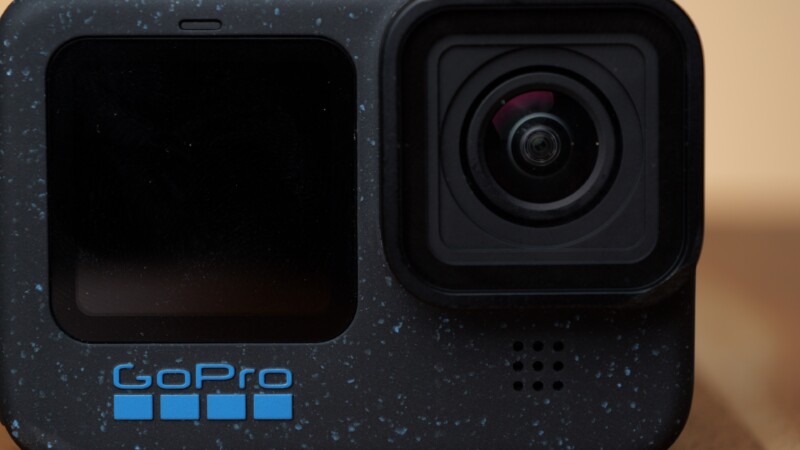
Last year saw one of the biggest upgrades by far with a new sensor inside the GoPro Hero 11. This 8:7 ratio, 27-megapixel, almost square format sensor unleashed some interesting potential. This year, the $400 GoPro Hero12 Black carries on with the exact same sensor but it looks like some tweaking was done to the all-important processing power. But before we delve into the heart of the camera, let’s take a look at the outside.
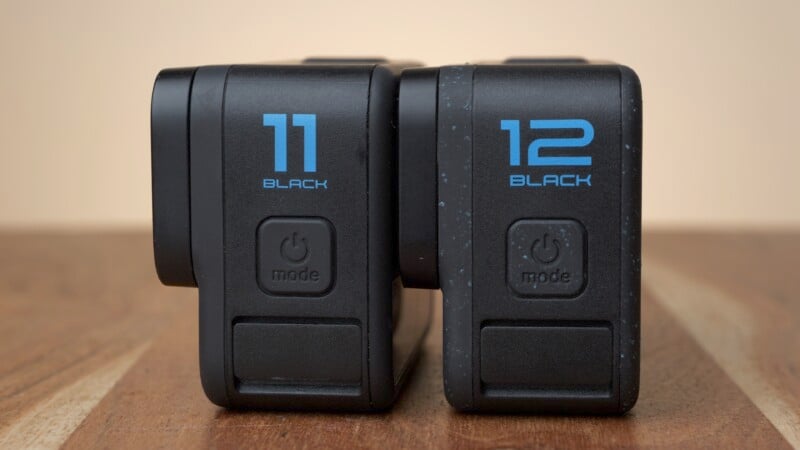
GoPro Hero12 Black: What’s on the Outside?
Externally, the GoPro Hero12 is dimensionally identical to the Hero11. We do have an interesting new paint job consisting of dark blue flecks that are reminiscent of a starry sky as much as it is a sloppy spray paint job. Otherwise, all accessories will swap from the Hero11 to the Hero12 seamlessly — including the battery. However, one welcome change is that the battery life has been improved slightly by around 10% to 15%. It might not seem like a big change but when it comes to action cams, every little bit helps. It should be noted that the battery itself isn’t bigger nor does it pack more juice, but rather that the camera is more efficient so it won’t overheat as quickly which leads to longer recording times.
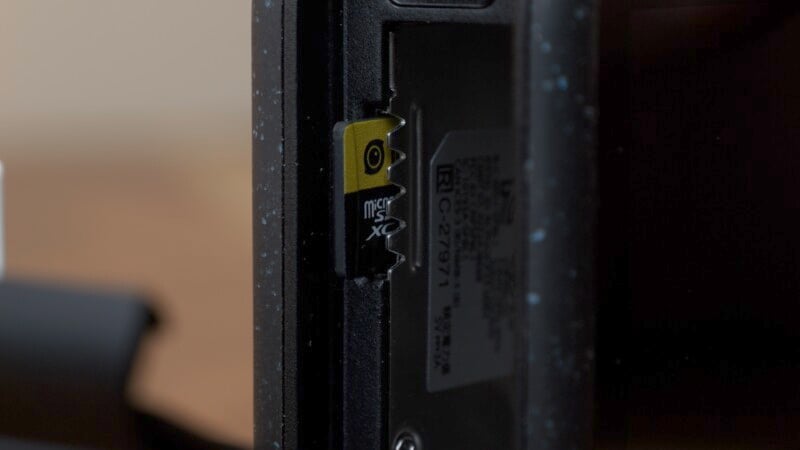
The GoPro Hero12 does have one other major improvement to the outside of the camera: although the mounting “wings” at the base of the camera are similar, an allowance has been made to locate a 1/4-20 standardized tripod thread mount. Gone are the days when an adapter is required to mount the GoPro to a tripod or similar screw mount accessory. This is a huge convenience and one that should have been implemented years ago. Better late than never though, right?
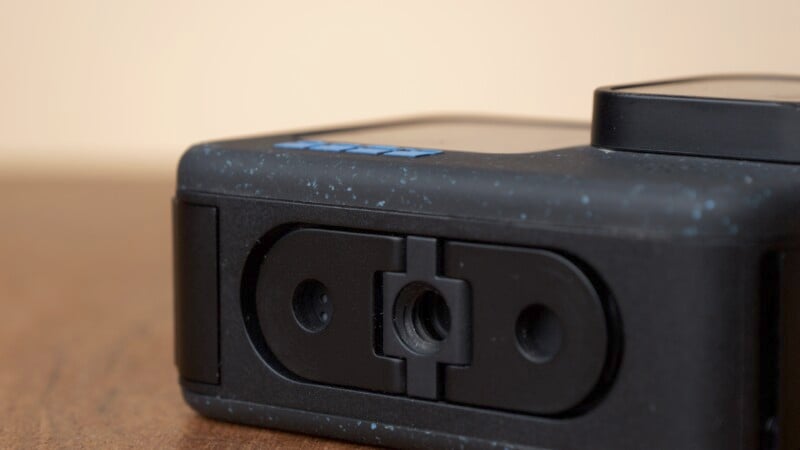
GoPro Hero12 Black: What’s on the Inside?
Because we have the same lens and sensor assembly we have the same fields of view on both the Hero11 and Hero12. If you hear any fanfare about the Hero12 having a wider lens, it is due to an optional new Max Lens Mod 2.0 which is made for said camera. It will give you an ultra-wide 177-degree field of view which surpasses the Hero 11.
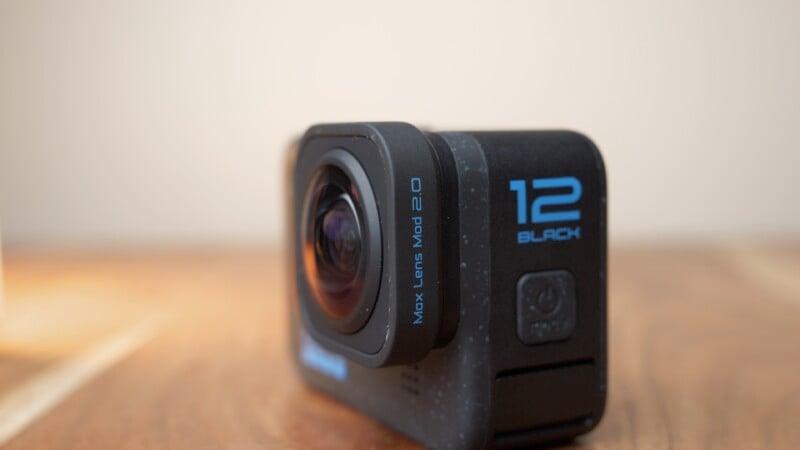
Otherwise, movie modes and frame rates are similar, which is a good thing. The Hero 12 features the same 5.3K 60 frames per second (FPS) video that the Hero11 does and has all the same excellent slow-motion capabilities up to the very fun 2.7K 240 FPS mode.
The almost square 8:7 ratio sensor allows for open-gate recording where the camera captures the full sensor area and then allows you to choose vertical or horizontal compositions at will. This is very handy for focusing on the action and making the creative choices later, whether it be mixing GoPro footage in with traditional cameras or editing vertical video for social media.

The Hero12 has all the same video profiles as the Hero11, including Protune, which is an easily graded flat profile. But it doesn’t end there; the Hero12 also finally adds a GoPro Log profile, GP-Log, which promises more dynamic range and editing potential. It certainly handles high-contrast scenes better than the Protune profile and is quite easy to grade.

The Hero11 also had some throttling issues due to overheating. Shooting 5.3K 60 FPS video would usually top out at around 35 minutes. The Hero12 must have a more efficient, cooler running processor because we are now getting around 75 minutes before it needs to take a break. This is a really big step up and unlocks the potential to record events and action scenes that would otherwise be almost impossible on the Hero11.
GoPro Hero12 Black: Wireless Audio with a Catch
One of the features that immediately caught our attention was the new Bluetooth audio support. Although you can still plug mics in the old-fashioned way, we now have the very modern option to connect Bluetooth microphones and earbuds. I paired my Jabra 4 Elite earbuds and could hear my audio in playback; a big advantage over the older models. Of course, there is also the ability to now narrate the action without any cables or adapters. I also got all the auditory feedback through my earbuds, with the usual beeps when the camera records or turns off.
The audio levels are automatically set by the camera, however, we did experience that the mic from my earbuds to the Hero12 came in too loud and my voice peaked multiple times. Some more control over the audio levels would be very welcome.
GoPro Hero12 Black: Same Old Features, But Better
We have some features returning to the Hero 12 which I really like. Firstly, Horizon Lock returns where the camera records video, albeit with a heavy crop, and allows the camera and subject to move freely whilst keeping the horizon level. This is a very useful tool that I would utilize heavily in any action scenario.

We also get the return of Auto-Boost stabilization which goes beyond the standard digital stabilization. Digital stabilization always imparts some loss of field of view, sacrificing wide-angle coverage for smoother motion capture. Auto-Boost goes even further by almost seamlessly zooming in tighter to enhance the stabilization when movement and action get erratic. Yes, you are losing even more FOV but you are also getting very smooth movement and the Hero12 handles the zooming effect even more seamlessly than the Hero11. When the action slows down again the zoom widens and I have to say, the Hero12 makes such smooth footage that the results look downright cinematic.
GoPro Hero 12 Black: To Upgrade or Not to Upgrade?
What we have is essentially a minor evolution of the Hero11. At its core, the Hero12 delivers similar video capabilities and results to its predecessor. Most of the improvements to the features like Auto-Boost are welcome, but minor at best.
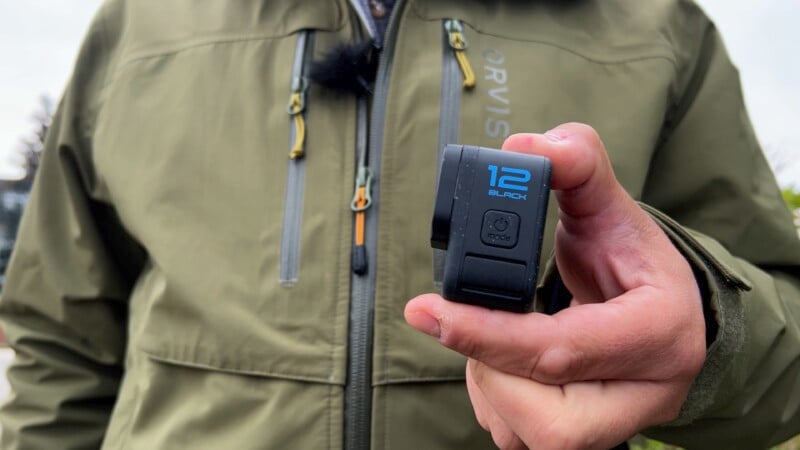
The real reasons why you might want to pull the trigger are the Bluetooth support and the GP-Log profile. Both of these open up some interesting opportunities for vlogging, documentary work, and action situations. Being able to record motorsports — and the cacophony of sounds — while having clean, wireless audio from inside the car or helmet is huge. The much longer record times before overheating and the ability to grade your footage even further will please the more cinematically inclined too.
Alternatives:
The DJI Osmo Action 4 in many ways mimics the GoPro Hero cameras and have similar video specs and slow motion capabilities. They are definitely worth a look, but there is no denying that GoPro still dominates the market.
Should You Buy It?
Maybe. I don’t know if the changes are substantial enough to move from the Hero 11, but if you’ve been holding off a while, the Hero 12 might be just what you’re looking for.